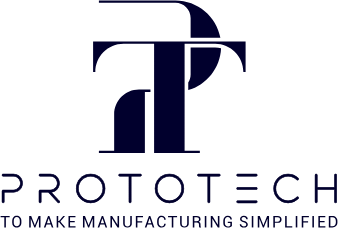Introduction
Titanium tungsten alloys are a unique blend of two highly durable metals, known for their strength, hardness, and resistance to extreme temperatures. These alloys combine the best properties of titanium and tungsten, making them suitable for a wide range of applications, from aerospace components to medical implants. In this article, we’ll explore the properties, benefits, and uses of titanium tungsten alloys, as well as how they compare to other materials in terms of performance and versatility.
Properties of Titanium Tungsten Alloys
Titanium tungsten alloys possess a set of properties that make them highly desirable for demanding applications:
1. High Strength and Hardness
The combination of titanium and tungsten results in an alloy with exceptional strength and hardness.
- High Tensile Strength: These alloys offer superior tensile strength, making them resistant to deformation under heavy loads. This is particularly beneficial for applications that require structural integrity under stress.
- Scratch and Wear Resistance: The hardness of tungsten, combined with the flexibility of titanium, makes the alloy highly resistant to scratches, wear, and mechanical damage.
2. Excellent Heat Resistance
Titanium tungsten alloys are known for their ability to withstand extreme temperatures.
- High Melting Point: With a melting point exceeding 3,000°C, titanium tungsten alloys maintain their structural integrity at high temperatures, making them suitable for applications in high-heat environments like aerospace engines and industrial furnaces.
- Thermal Stability: The alloys retain their strength and hardness even at elevated temperatures, ensuring consistent performance in thermal applications.
3. Corrosion Resistance
The alloy exhibits excellent resistance to corrosion, making it ideal for use in harsh environments.
- Resistance to Chemicals: Titanium tungsten alloys are resistant to a wide range of chemicals, including acids and alkalis, making them useful in chemical processing equipment and other corrosive environments.
- Oxidation Resistance: They also exhibit high resistance to oxidation, which extends their lifespan in applications exposed to air and moisture.
4. Biocompatibility
Titanium tungsten alloys are biocompatible, which makes them suitable for medical applications.
- Safe for Implants: The alloys are non-toxic and do not react adversely with body tissues, making them suitable for medical implants and surgical tools.
- Hypoallergenic: The hypoallergenic nature of the alloy reduces the risk of allergic reactions, ensuring better compatibility with the human body.
5. Lightweight
Despite tungsten’s high density, the addition of titanium reduces the overall weight of the alloy.
- Improved Performance: The reduced weight combined with high strength makes titanium tungsten alloys ideal for applications where weight reduction is critical, such as in aerospace and automotive industries.
Applications Across Industries
The unique properties of titanium tungsten alloys make them useful in a variety of industries:
1. Aerospace and Defense
The aerospace and defense sectors are major users of titanium tungsten alloys due to their high strength, heat resistance, and lightweight nature.
- Engine Components: The alloys are used to manufacture engine parts that need to withstand extreme temperatures, such as turbine blades, exhaust systems, and heat shields.
- Armored Vehicles: In defense applications, titanium tungsten alloys are used in armor plating for military vehicles and aircraft, providing enhanced protection with less weight.
2. Medical Devices and Implants
Titanium tungsten alloys’ biocompatibility makes them suitable for various medical applications.
- Orthopedic Implants: They are used in knee, hip, and spinal implants, where strength, corrosion resistance, and biocompatibility are crucial.
- Surgical Instruments: The alloys are also used to create surgical tools that require a combination of sharpness, durability, and resistance to sterilization processes.
3. Industrial Equipment
Industrial applications benefit from the high strength and corrosion resistance of titanium tungsten alloys.
- Cutting and Drilling Tools: The alloys are used in cutting, drilling, and mining tools, offering durability and wear resistance in harsh working conditions.
- Heat Exchangers and Reactors: Their high thermal stability and corrosion resistance make them ideal for heat exchangers and chemical reactors used in industrial processes.
4. Automotive Components
The automotive industry uses titanium tungsten alloys for components that require high strength and durability.
- Engine Parts: The alloys are used in high-performance engine components, such as valves and pistons, where heat resistance and strength are essential.
- Brake Systems: Titanium tungsten alloys are also found in high-performance brake systems, offering better wear resistance and reliability under extreme conditions.
5. Jewelry and Fashion
Titanium tungsten alloys have become popular in the jewelry industry due to their durability and aesthetic appeal.
- Rings and Bracelets: The scratch resistance and hypoallergenic properties make these alloys ideal for rings, bracelets, and other fashion accessories.
- Luxury Watches: The alloys are also used in luxury watch casings, combining a sleek appearance with exceptional durability.
Comparative Analysis
Titanium tungsten alloys stand out when compared to other materials due to their unique properties:
| Property | Titanium Tungsten Alloy | Pure Titanium | Pure Tungsten |
| Strength | High, with excellent durability | High, but lower than alloy | Very high |
| Heat Resistance | Excellent | Moderate | Excellent |
| Weight | Lightweight | Lightweight | Very dense |
| Corrosion Resistance | Excellent | Very good | Moderate |
| Biocompatibility | High | High | Low |
| Wear Resistance | Very high | Moderate | High |
This table highlights how titanium tungsten alloys offer a balance of strength, heat resistance, weight, and biocompatibility that pure titanium and pure tungsten alone cannot provide. This makes them more versatile for applications requiring a combination of these properties.
Conclusion
Titanium tungsten alloys combine the best properties of titanium and tungsten, resulting in a material that is strong, heat-resistant, and biocompatible. From aerospace and defense to medical devices and industrial equipment, these alloys offer a wide range of applications where durability, lightweight characteristics, and resistance to harsh conditions are essential. As industries continue to demand advanced materials that can withstand extreme environments, titanium tungsten alloys will play an increasingly vital role in modern manufacturing.Interested in using titanium tungsten alloys for your next project? Contact us today to learn more about their benefits and how they can enhance your applications.








